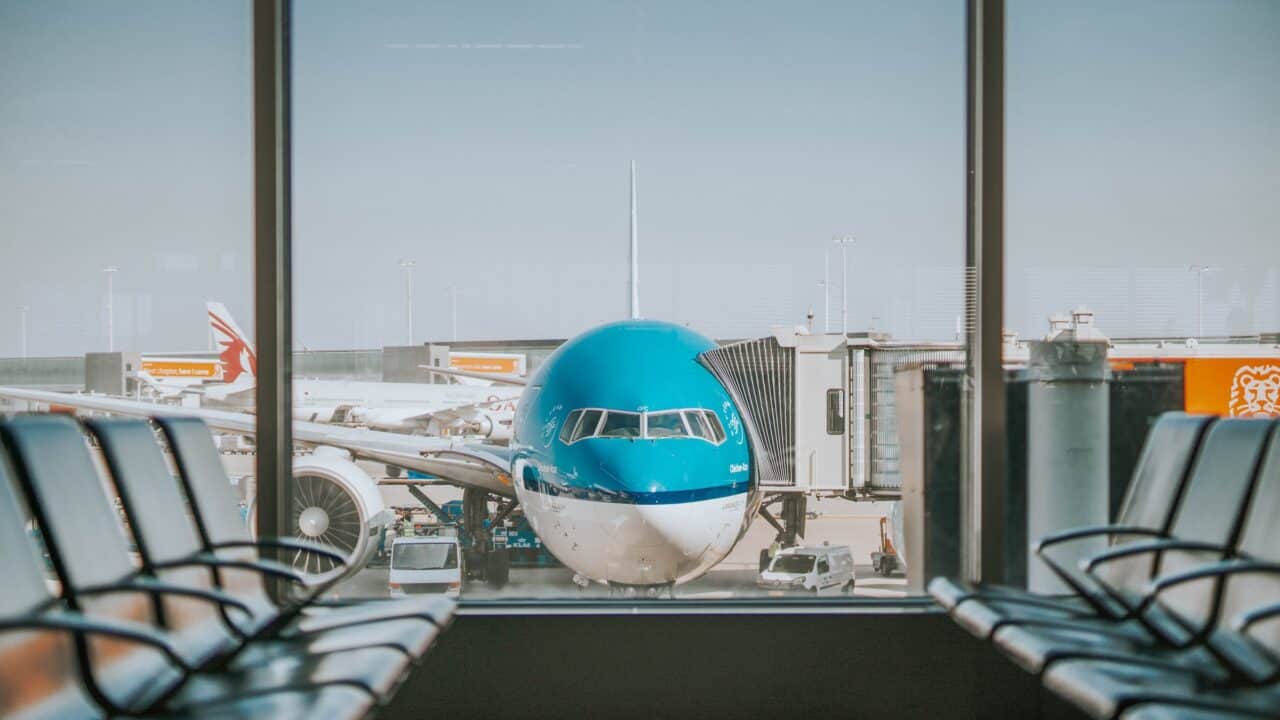 "Airplane parked near passenger pathway" by Oskar Kadaksoo
"Airplane parked near passenger pathway" by Oskar Kadaksoo
As Congress prepares to consider legislation reauthorizing the Federal Aviation Administration, lawmakers should reject efforts to increase the Passenger Facility Charge (PFC) – a government-imposed fee collected from enplaned passengers at commercial airports controlled by local and state governments.
Revenue earned through the PFC program is used to fund airport improvement projects and is currently capped at $4.50 per enplanement at a maximum of $18 per round trip. This cap on the PFC serves to protect consumers from runaway fees charged by government-run airports receiving federal taxpayer dollars.
Increasing the PFC would result in higher ticket prices for passengers traveling through airports and reduce overall passenger demand. The Government Accountability Office previously concluded that higher ticket prices resulting from a PFC increase “could also marginally slow passenger growth and therefore the growth in revenues to the Airport and Airway Trust Fund (AATF).”
Airline passengers are already overtaxed and hammered with government fees
The PFC is just one of the many government-imposed costs charged to the flying public that drive up ticket prices.
Taxes and government fees already account for more than 20 percent of the cost for a standard domestic ticket. Congress should be focused on reducing this cost burden placed upon consumers rather than adding to it.
Here is a list of federal taxes and fees that consumers are already paying:
- 7.5% Passenger Ticket Tax
- $4.80 Flight Segment Tax
- 7.5% Frequent Flyer Tax
- $21.10 International Departure Tax
- $21.10 International Arrival Tax
- 4.4¢ per gallon commercial jet fuel tax
- $4.50 per enplanement PFC
- $3.96 APHIS Passenger Fee
- $5.60 September 11th Fee (Funds TSA)
- $6.52 Customs User Fee
- $7.00 Immigration User Fee
Congress just handed airports $20 billion in taxpayer funding
Airports received two new airport grant programs totaling $20 billion from taxpayers through fiscal year 2030 from the Infrastructure Investment and Jobs Act. The same legislation provided a further $5 billion for airport Air Traffic control projects. Despite this record spending, some members of Congress have proposed uncapping the PFC entirely, which would provide even more funding to airports at the cost of higher ticket prices for consumers.”
Consumers should not be asked to front the bill for more spending when airports are already receiving boosted funding from taxpayers. Consumers should especially not be further burdened when that spending goes towards non-critical infrastructure projects at airports.
A Congressional Research Report from June of 2022 found that PFC funds “are more likely to be used for bond repayments and landside projects, such as improvements to passenger terminals and ground transportation facilities” than grants from the Airport Improvement Program. In fact, only 9% of PFC revenues go towards airside projects like runways, taxiways and new aircraft guidance systems. In contrast, 80 percent of PFC money is spent paying interests on bonds and on “landside” projects like passenger terminals.
Increasing the PFC stifles competition
Proponents of increasing the PFC often make a misguided case that increasing or removing the PFC cap aligns with free-market principles by promoting competition between airports regarding infrastructure investment.
This is nonsense. There is no free-market competition between government entities.
All but one commercial airport in the U.S. is government-owned, typically by state or local governments. JFK and La Guardia airport, for example, are owned by the City of New York. Ronald Reagan National Airport is federally owned by the Department of Transportation.
As the libertarian Reason Foundation aptly states, “governments operate free from competitive forces and without a bottom line. Agency and program budgets are too rarely tied to results, so poor performance in government is often perversely rewarded with budget increases.”
A 2020 study contracted by Congress in the Federal Aviation Administration (FAA) Reauthorization Act of 2018 found “any effects of individual PFC projects are, on average, small relative to other factors, such as local economic conditions and airline hubbing decisions,” and that “no single PFC project is likely to significantly alter the competitive landscape in an individual market.”
Increasing the PFC, however, will stifle competition between airlines by adding an additional barrier for smaller airline companies who operate under an ultra-low-cost business model. These smaller airlines have the most price-sensitive customers with a high demand-elasticity in reaction to price-increases. Higher ticket fees hit them hardest. This explains why ultra-low-cost carriers such as Spirit Airlines have testified in Congress against raising the PFC.
Americans for Tax Reform urges lawmakers to reject any increase of the Passenger Facility Charge and to protect American travelers and consumers from inflated ticket prices resulting from even more government taxes and fees.
